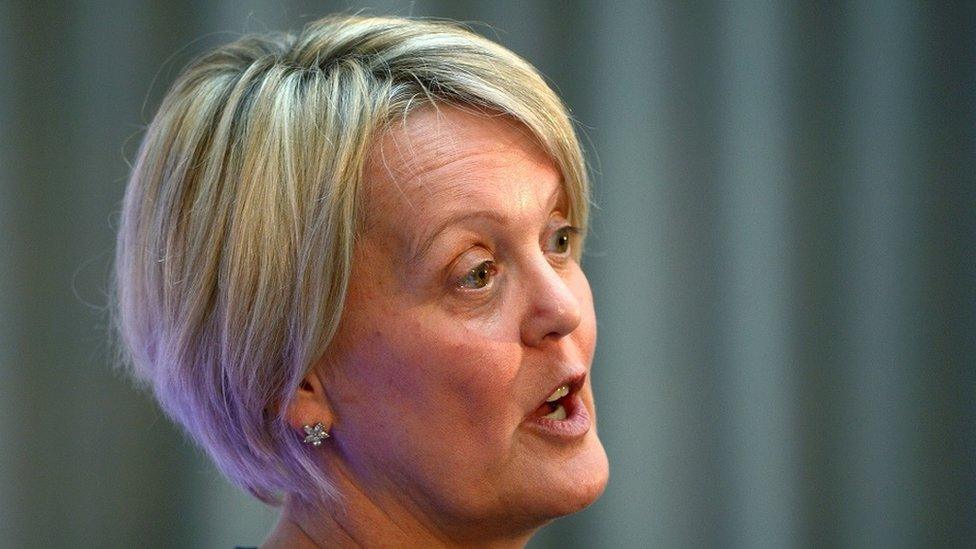Dame Alison Rose: Why did the government get involved?
- Published

Dame Alison Rose's resignation was announced in the early hours
It seems clear that government pressure helped oust NatWest's chief executive.
On Tuesday evening, Dame Alison Rose was trying to stay in her job.
At 1742, the bank published a statement saying it had "full confidence" in Dame Alison, despite her "significant error of judgement" in discussing Nigel Farage's relationship with Coutts (which is part of the NatWest group).
But over the course of the evening, the government made it clear it was not happy.
Downing Street said Rishi Sunak was concerned about the unfolding situation. We were also told chancellor Jeremy Hunt had "serious reservations".
Remember, the NatWest Group is still 39% owned by the Treasury - that sort of pressure from the government would be hard to ignore.
So, as the clock approached midnight, the bank held an emergency board meeting.
At 0145, the bank's chairman Sir Howard Davies announced that Dame Alison had agreed to step down "by mutual consent".
But why did the government get involved?
No 10 has made it clear that the prime minister believed business leaders need to act "responsibly". The inference is that by discussing Nigel Farage's relationship with her bank, Dame Alison had fallen short.
But ministers have been looking at "de-banking" for months.
There have been concerns people were losing their accounts without valid reasons or a right to appeal.
The Treasury has been worried since the beginning of the year, when the issue was raised by free speech campaigners. It launched a consultation on firming up protections.
The concerns exploded into public view after Nigel Farage's accusations against Coutts.
They were amplified when he published a dossier, which showed his political views were discussed when Coutts decided to close his account.
There is genuine anger in Westminster that political views can play a role in banking decisions.
Several Conservative MPs have voiced their concerns in Parliament.
Some have argued Mr Farage was discriminated against because of his pro-Brexit views.
Government minister Chris Philp told the Today programme: "It's a question of free speech and political freedom."
Business secretary Kemi Badenoch also expressed concerns this morning, tweeting: "There are many less high profile individuals whose accounts appear to been closed for this reason. I hope banks will look again."
Labour's leader Sir Keir Starmer agreed that Dame Alison was right to resign and that people shouldn't lose their bank accounts because of their politics.
But Labour MP Darren Jones, who chairs the business select committee, questioned why ministers had got involved in this case, when they had stayed out of other cases where bad business practice was alleged.
He tweeted: "It's about power. The power Farage seems to have over the Tories."
Ministers want to ensure legally expressed views cannot be a reason for someone to lose their access to banking facilities.
The government is now planning to strengthen protection for customers.
Banks will have to give three months' notice - and a proper explanation for why their account is being closed.
Officials have been asked to look at whether new conditions should be added to banking licences.
Bank bosses are meeting City minister Andrew Griffith on Wednesday to discuss the new measures.